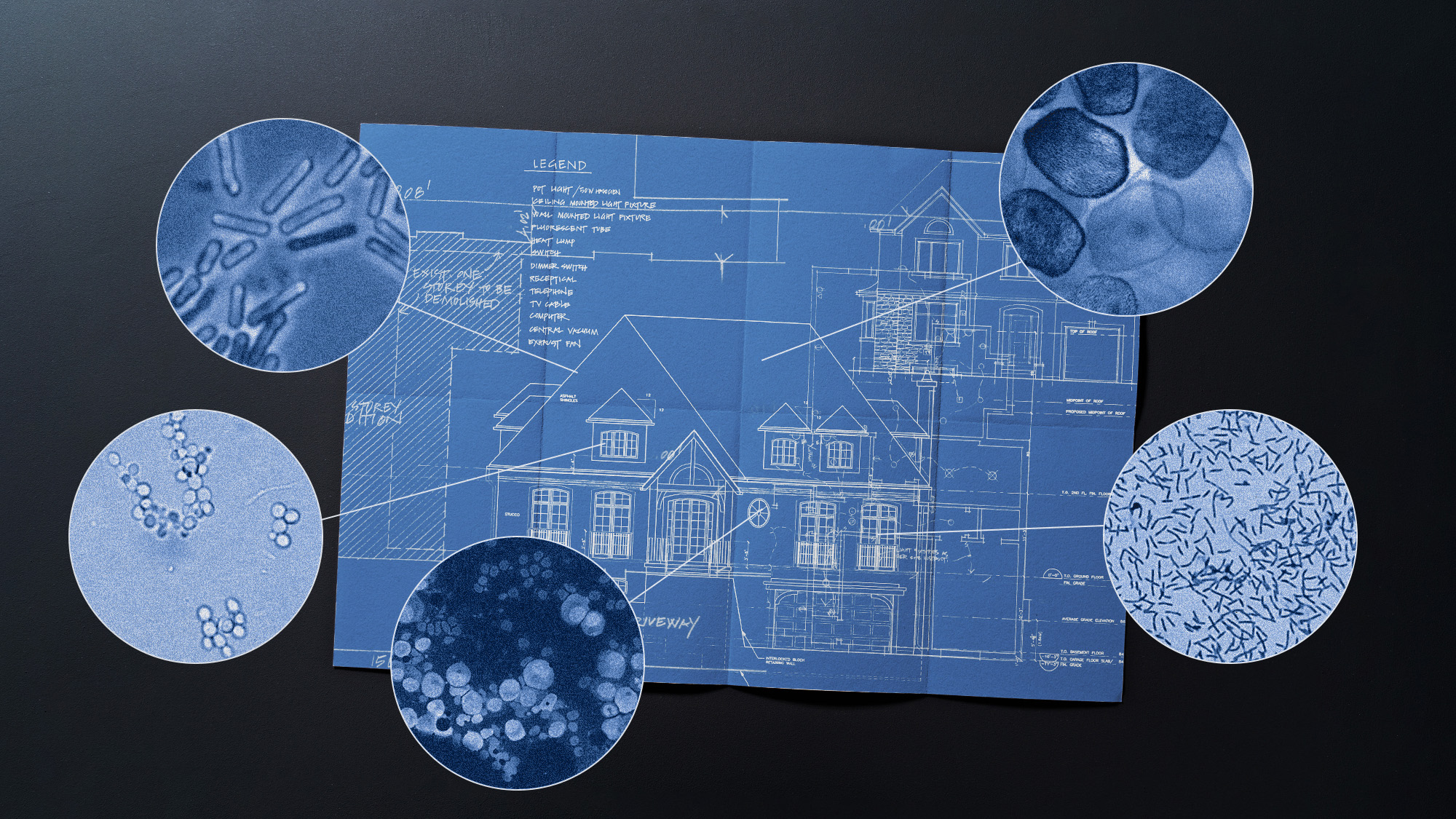How to create a healthy 'germier' home
Exposure to a broad range of microbes can enhance our immune system, especially during childhood

A free daily email with the biggest news stories of the day – and the best features from TheWeek.com
You are now subscribed
Your newsletter sign-up was successful
House-proud types may find this hard to process but "germier" homes can actually be great for our health.
Although some bacteria and viruses are clearly bad news, the "vast majority of these microbes are harmless or actually beneficial", said The Washington Post, so some families are taking steps to welcome them through their doors.
Which germs are good for us?
We don't just share our home with "family or pets", said Samuel J. White and Philippe B. Wilson on The Conversation, we also exist alongside "millions of invisible microbes". House dust alone is "home to 9,000 different species".
The Week
Escape your echo chamber. Get the facts behind the news, plus analysis from multiple perspectives.

Sign up for The Week's Free Newsletters
From our morning news briefing to a weekly Good News Newsletter, get the best of The Week delivered directly to your inbox.
From our morning news briefing to a weekly Good News Newsletter, get the best of The Week delivered directly to your inbox.
This might sound terrifying but exposure to a broad range of microbes can enhance our immune system, especially during childhood. The idea is "rooted in the hygiene hypothesis", which claims that early exposure to microbes helps train the immune system to "distinguish between harmful and harmless agents".
Some microbes in the natural world are like "old friends", Graham Rook, emeritus professor of medical microbiology at University College London, told The Washington Post, and they evolved alongside us.
So microbial exposure could reduce our chances of developing some allergies and autoimmune diseases, including asthma, hay fever, eczema and multiple sclerosis. It could also bolster the immune system against common respiratory illnesses like colds, flu and bronchitis.
Living in cities has been linked to an increased risk of depression and other mental health issues. Although there are "probably many factors at play", said White and Wilson, people living in a city are exposed to fewer microbial species, which can influence how the gut communicates with the brain, making mental health disorders more likely.
But exposure to some microbes can be damaging and homes with poor ventilation and high levels of moisture can "harbour harmful pathogens", with damp and mouldy conditions linked with respiratory issues such as asthma and allergies.
A free daily email with the biggest news stories of the day – and the best features from TheWeek.com
How to create a 'germier' home
As our understanding deepens, there's "growing interest in intentionally shaping these microbial communities" in the home to "promote wellbeing".
Indoor plants can create a healthier microbial environment because they nurture diverse microbial communities indoors. As long as you live in an area with good air quality, then simply "opening the windows" can help, said The Washington Post, particularly if your home is within 500 yards of diverse plants, because plants and soil release immune-boosting microorganisms.
But if you have allergies to spring pollen, experts say you should keep your windows closed to avoid exacerbating your symptoms.
Pets, and particularly dogs, have been shown to "alter and diversify" the microbiome inside a home. Experts connected this with dogs "running around outside and getting dirty, then tracking microorganisms into the house".
Buildings could be designed so they "naturally support a healthy microbiome", said White and Wilson. This could be done by using natural materials – such as wood, which can harbour beneficial microbes – or by designing ventilation systems that enhance microbial diversity.
There could also be "living walls" containing diverse plant and microbial life, or building materials "embedded" with beneficial bacterial spores that can be "activated when needed".
Chas Newkey-Burden has been part of The Week Digital team for more than a decade and a journalist for 25 years, starting out on the irreverent football weekly 90 Minutes, before moving to lifestyle magazines Loaded and Attitude. He was a columnist for The Big Issue and landed a world exclusive with David Beckham that became the weekly magazine’s bestselling issue. He now writes regularly for The Guardian, The Telegraph, The Independent, Metro, FourFourTwo and the i new site. He is also the author of a number of non-fiction books.